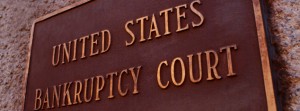 Bankruptcy provides powerful tools and protections for individual consumers who need relief from their debts, protection from their creditors and a fresh financial start. By filing a petition for bankruptcy, you get the immediate protection of the Bankruptcy Code’s Automatic Stay, which prevents creditors from taking any action to collect a debt from a bankruptcy debtor. The imposition of the Automatic Stay is a powerful and dramatic legal remedy you have to stop creditor harassment or creditors’ attempts to collect debts. The Automatic Stay takes effect the instant the bankruptcy petition is filed, and from that moment the debtor’s property is placed under the protection of the Bankruptcy Court. Some of the actions creditors and debt collectors are prohibited from taking once the petition is filed include:
Bankruptcy provides powerful tools and protections for individual consumers who need relief from their debts, protection from their creditors and a fresh financial start. By filing a petition for bankruptcy, you get the immediate protection of the Bankruptcy Code’s Automatic Stay, which prevents creditors from taking any action to collect a debt from a bankruptcy debtor. The imposition of the Automatic Stay is a powerful and dramatic legal remedy you have to stop creditor harassment or creditors’ attempts to collect debts. The Automatic Stay takes effect the instant the bankruptcy petition is filed, and from that moment the debtor’s property is placed under the protection of the Bankruptcy Court. Some of the actions creditors and debt collectors are prohibited from taking once the petition is filed include:
- Any act to collect or recover a claim against you that arose before the bankruptcy case was filed;
- The commencement or continuation of a civil law suit against you by which the creditor seeks to recover money. In other words, lawsuits to collect credit card debts or to garnish your wages or bank accounts;
- Any foreclosure actions; and
- Any actions to repossess your cars or other automobiles and personal property.
In most cases, the ultimate goal of filing a bankruptcy petition is to receive a discharge of debts. A bankruptcy discharge frees a debtor from personal liability on almost all civil debts. The bankruptcy discharge is the means by which debtors are provided a “fresh start.”
In a chapter 7, the method of obtaining a discharge is rather straight forward. For more information on chapter 7 bankruptcy, see our Chapter 7 Bankruptcy page. In most cases, the Bankruptcy Court usually enters a discharge order within 90 to 120 days after the bankruptcy petition is filed. In a chapter 13 bankruptcy, which involves the reorganization of debts and a payment plan, the discharge is not given until after three to five years, but in some cases a debtor can receive a discharge in less than three years. For more information on chapter 13 bankruptcy, see our Chapter 13 Bankruptcy page.

Speak Your Mind